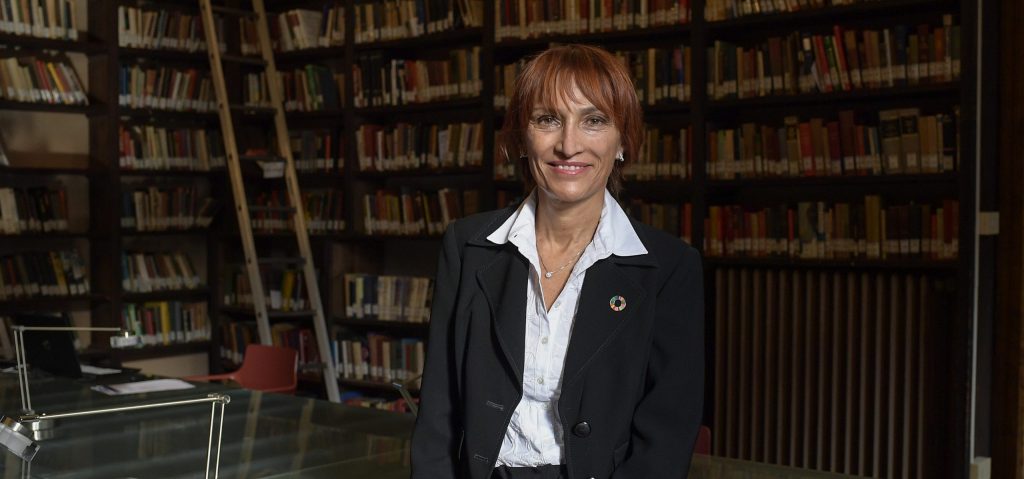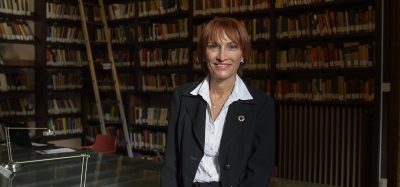Daniela Bernacchi is executive director and secretary general of UN Global Compact Network Italy (GCNI). “Acting sustainably should be integrated into the strategies of companies at all levels,” she tells Future
‘The world’s largest corporate sustainability initiative’ is a bold stake to claim, but the United Nations Global Compact can more than back that up – and has a worldwide network to do exactly that. A voluntary initiative based on member company CEO commitments to implement universal sustainability principles, the Global Compact provides a principle-based framework, best practices, resources and networking events that “have revolutionized how companies do business responsibly and keep commitments to society.”
Its Ten Principles are derived from the Universal Declaration of Human Rights, the International Labour Organization’s Declaration on Fundamental Principles and Rights at Work, the Rio Declaration on Environment and Development, and the United Nations Convention Against Corruption, and focus on Human Rights; Labour; Environment, and Anti-Corruption.
Here, Daniela Bernacchi, executive director and secretary general of UN Global Compact Network Italy, provides her views on what it means to truly act sustainably and why she is optimistic for the future of sustainable business in Italy and beyond. “I have to be positive. It’s in my DNA,” she laughs.
What is your background?
Daniela Bernacchi: I gained a business degree and started my working career in the marketing department of international multinational companies, firstly in publishing and entertainment, then in utilities and energy businesses. I switched again to the so-called ‘non-profit’ sector, working for two different non-government organizations [NGOs], focusing on sustainable development, agriculture, agri-food, gender issues and human rights. This was very helpful in terms of gaining knowledge of the 2030 Agenda [for Sustainable Development], the priorities and laws around the issue of sustainability. I applied for this position at UNGC in Italy, because I thought it was the perfect combination of my two experiences in ‘profit’ and ‘non-profit’. I joined in September 2019.
What does the role of executive director and secretary general of the Italian network encase?
Daniela Bernacchi: I manage the Italian staff and plan the strategy for the network reporting to the board. I also have an institutional role in representing the organization with our government, at events and congresses at national as well as international level. We are connected at a regional level that combines Western Europe and North America, including Canada. I collaborate with the network in this region on joint programs when needed and help organize activities. It’s very important for me to have a connection with the regional and local networks, plus the European authorities, on new laws coming up on reporting, sustainability directives and so on.
What is the mission of UN Global Compact Network Italy?
Daniela Bernacchi: We’re focused on growing the network and acquiring new members every year. Then, from a programmatic point of view, we are engaged in two main areas: climate and environment; and targeting gender equality, while there is an additional focus on sustainable finance. On that, we collaborate with the CFO Coalition, which was launched in 2019. It’s an international program, where all the CFOs of big, prestigious companies gather to share best practice on environmental, social, and corporate governance (ESG) investment, as well as finance principles and indicators to monitor impact on sustainable ESG investment.
Our network also develops activity around the main subject of diversity and inclusion. We have an observatory that started in 2021 where we work together with experts, such as ILO and AIDP, and companies to share best practice, and methodologies for companies that are committed to working in an inclusive environment.
“Our network also develops activity around the main subject of diversity and inclusion. We have an observatory that started in 2021 where we work together with experts, such as ILO and AIDP, and companies to share best practice, and methodologies for companies that are committed to working in an inclusive environment”
Daniela Bernacchi
How does the Italy division interact with other country networks?
Daniela Bernacchi: Every 15 days, I meet with the other executive directors of our regions, and we share opportunities for joint activities. Last year, we worked closely with the UK Network, because the UK was hosting COP26, while Italy was hosting the Pre-COP events. So, we collaborated in Milan and Glasgow. On the other hand, there is multi-stakeholder activity, including peer learning groups at a European level on climate and human rights. We have quarterly meetings on best practice and share our experiences.
What are some of the social sustainability topics GCNI is currently addressing?
Daniela Bernacchi: This year, we have been working on a program on sustainable supply chain. That led to a paper [in Italian] called Sustainable Supply Chains: Opportunities and Challenges for Companies. One of its dimensions was human rights. Sustainability in supply chains has a lot to do with [de]-carbonization, but also with responsible production, especially when you go from tier one of a supply chain to tiers two and three. Big companies really do have great responsibility, and therefore, procurement shouldn’t be based on cost efficiency only because it might result in the risk of abuse of human rights. We are also working on a global/local program to target gender equality to prevent discrimination against women in terms of career opportunities, but also salary gaps and sexual harassment in the workplace. This is an exceptionally social dimension, but we see it a lot in companies.
What does people and businesses acting sustainably mean to you?
Daniela Bernacchi: Acting sustainably should be integrated in the strategies of companies at all levels. So, what we’re seeing at Global Compact is that often company sustainability departments are trying their best, but it’s not enough if there is not a strong commitment from their CEOs. So, it’s important sustainability strategies are integrated in all processes from purchasing, to human resources and sales too – it must be a vision that leads all decision-making and strategies in a company. I’m also reminded that our tenth principle focuses on Anti-Corruption. So, procurement has a lot to do with this belief as well.
Acting sustainably means employing a sustainable strategy throughout your company. A strategy can be tactical, but it must also be long-term. We all have a responsibility for the way we have destroyed parts of the environment and the ecosystems. So, all companies must engage on the reducing the negative impact they’re having. If we see sustainability as a long-term investment, then it will come back to you – because the only companies that will still be here in five years’ time, will be the sustainable ones. If you don’t work on your operations and on your people, I don’t think you ever own your governance and processes. You won’t stay competitive. Institutional investors are more likely to give money to companies that are sustainable. Talented young people won’t want to join you either.
Are you confident the world will be in a better place by the end of this decade?
Daniela Bernacchi: I have to be positive. It’s in my DNA. We are improving consciousness of the risks of not being sustainable, but at the same time, we’re not on track for 2030 Agenda. We have to raise the bar, and increase the commitments of not only companies, but other responsible players: institutions, governments and also citizens. Companies can also have a positive role in influencing and educating consumers on sustainable behaviors. But I’m also conscious that there are still areas for major improvement currently missing. ‘Business as usual’ is not an option anymore. I can understand it can be seen as more profitable, and less costly, but it’s not acceptable anymore.

UN Global Compact focuses on Human Rights; Labour; Environment, and Anti- Corruption






